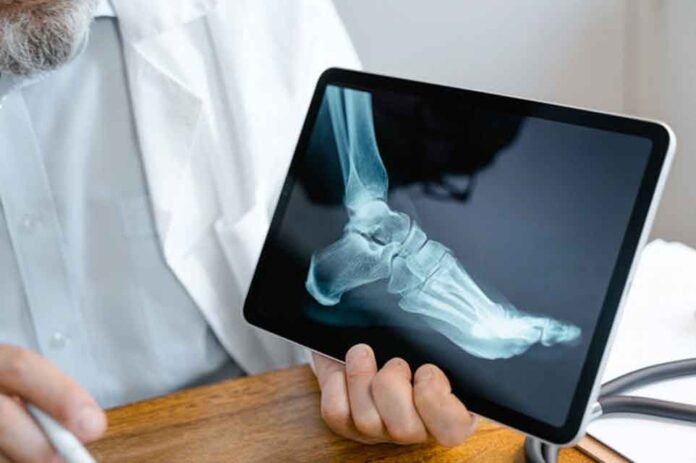You know that there are plenty of nutrients you should be consuming to keep your bones strong and healthy, but you might not know exactly which ones these are. To help you out, here’s our list of the top 10 nutrients to keep your bones strong and healthy.
1) Eat Your Greens
Contents
Calcium is essential for bone health, but you also need vitamins A, C, D, K1, and potassium. Cruciferous vegetables—particularly broccoli—are a rich source of vitamin K1. Sweet potatoes are packed with beta-carotene (provitamin A), while spinach contains vitamin A itself in addition to calcium and other nutrients.
2) Calcium – More Isn’t Always Better
While calcium is a crucial mineral for strong bones, taking in too much or too little can actually do more harm than good. That’s why it’s important to speak with your doctor before taking any supplement, especially one that boasts high doses of calcium.
3) Magnesium – Get What You Need Every Day With These Foods
seafood, whole grains, seeds, nuts, and beans. While eating these foods will help keep your bones strong, you can also take a supplement or get shots of magnesium at your doctor’s office. No matter what method you choose, make sure you’re getting enough because it helps bones stay healthy.
4) Vitamin D – The Sunshine Vitamin

One of vitamin D’s most important roles in maintaining bone health. In fact, research shows that having a lower level of vitamin D in your blood is linked with higher rates of fractures, falls, and bone loss as you age. Since vitamin D from food sources is limited, many experts recommend supplementing with 800 IU (international units) per day. Look for supplements that have been tested for their levels of vitamin D.
5) Vitamin K2 – It’s Essential For Bone Health!
Vitamin K2 promotes proper bone formation, and that’s important because a lack of vitamin K2 can lead to serious problems like osteoporosis. If you want strong bones that don’t fracture easily, consider adding more vitamin K2-rich foods into your diet. For example, grass-fed butter is rich in vitamin K2 as are hard cheeses.
6) Protein – Build Strong Bones With This Nutrient
This nutrient is so important, that it’s been dubbed the king of nutrients. It contains a variety of nutrients that can help your body grow strong bones. Protein-rich foods include lean meats (such as chicken breast, turkey breast, fish), beans (including black beans, lentils, and chickpeas), tofu, and eggs.
7) Boron – Bone-Building Mineral
Boron is a natural mineral that can help your body utilize certain nutrients. It helps increase sex hormone production in women, and also may strengthen bones by increasing levels of estrogen. Because boron also helps regulate calcium, it’s important for bone health. Getting enough boron in your diet can help prevent osteoporosis, a condition that weakens bones as they lose their density, making them more susceptible to fractures.
8) Omega-3 Fatty Acids – Fight Osteoporosis With EFAs

Omega-3 fatty acids are an important nutrient that helps maintain healthy bone density and lubricate joints. Their role in promoting joint health is especially important for older adults, who are at greater risk of developing osteoporosis (weakened bones). Omega-3s can be found in fish, flaxseed oil, chia seeds, walnuts, and dark leafy greens.
9) Drink Water – Staying Hydrated Keeps Your Bones Healthy Too!
You may have heard that drinking lots of water is good for your bones, but did you know that even mild dehydration can negatively impact bone density? Make sure you’re getting enough water every day. If your urine is very light or almost clear, then you’re probably staying hydrated enough. You should also be urinating a few times a day as well.
10) Get exercise – Daily Movement Keeps Your Body Strong As You Age.
You don’t have to run marathons or lift heavy weights, but maintaining a physically active lifestyle is one of the best things you can do for your body. Even a moderate exercise routine—taking a brisk walk every day or playing tennis on weekends—will help ward off problems such as osteoporosis. Studies show that even light activity like walking about 30 minutes per day is linked with increased bone density in women ages 40–70.



